From AI to Career Identity: How Northeast Leaders Are Redefining Student Success
At the heart of the inaugural pre-NYSCATE Tech & Learning Leadership Summit conversations was the student, with an eye on how district leaders can best prepare them for an unknown future workforce.
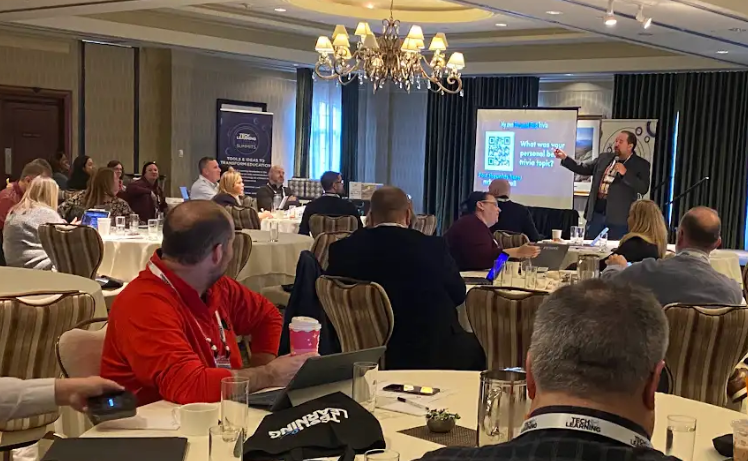
Tools and ideas to transform education. Sign up below.
You are now subscribed
Your newsletter sign-up was successful
Tech & Learning recently partnered with NYSCATE (The New York State Association for Computers and Technologies in Education) for the inaugural pre-NYSCATE Conference Tech & Learning Leadership Summit, which took place at the Turning Stone Resort Casino, a Native American resort casino owned and operated by the Oneida Indian Nation. School district leaders from New York and beyond gathered for this one-day event dedicated to the theme of “Reimagining Education.”
The agenda for the day was informed by the attendees, who identified their most pressing issues as district leaders. Topics included AI, student wellness, cell phone bans, implementing computer science and digital fluency standards, cybersecurity challenges, and more. These conversations were facilitated by attendees with experience on each topic, who guided meaningful conversations that encouraged everyone at the table to share their successes, troubleshoot challenges, and expand their professional learning communities.
Three general session presentations also offered real-world examples of ways district leaders can prepare their students for an uncertain world of work.
Beyond "What Do You Want to Be?": Quakertown’s K-12 Career Language Integration Program
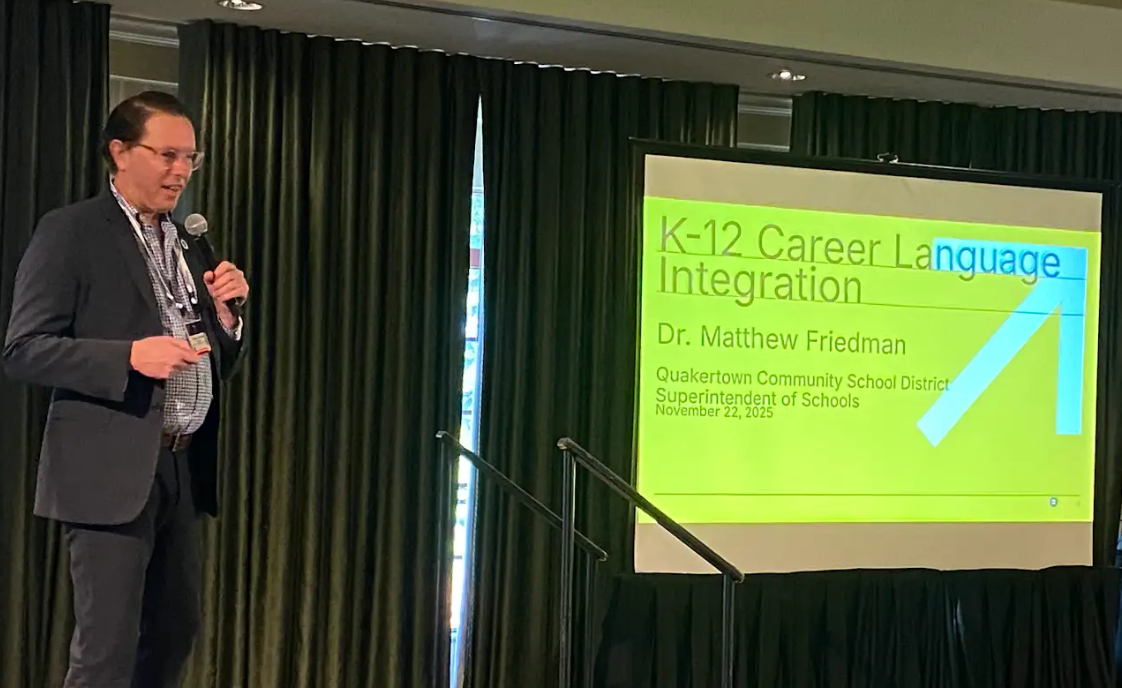
In a rapidly evolving workforce where tomorrow’s jobs may not yet exist, Dr. Matthew Friedman, Superintendent of Schools, Quakertown Community School District argues that the age-old question, "What do you want to be when you grow up?" is obsolete. Instead, Quakertown Community School District (QCSD) is championing K-12 Career Language Integration, a systemic program designed to equip students with a robust vocabulary to understand their own identities and interests.
At the heart of this initiative is the RIASEC framework, which categorizes interests into six themes: Realistic (Doers), Investigative (Thinkers), Artistic (Creators), Social (Helpers), Enterprising (Persuaders), and Conventional (Organizers). By introducing these terms as early as kindergarten, the district provides a shared language that evolves with the student. Rather than forcing a first-grader to pick a career, teachers help them identify as a "Helper" or a "Creator," making career development personal and accessible.
Friedman emphasized that this is "a dialogic process," not a one-time test. Career readiness is built through ongoing conversations embedded in everyday instruction. When students connect their enjoyment of a science experiment to being an "Investigative Thinker," they see the link between current education and future aspirations.
Early research shows this approach is working, with students reporting a deeper understanding of themselves and data indicating that school-based career conversations are successfully "activating" similar discussions at home.
Tools and ideas to transform education. Sign up below.
Bringing the "Portrait of a Graduate" to Life
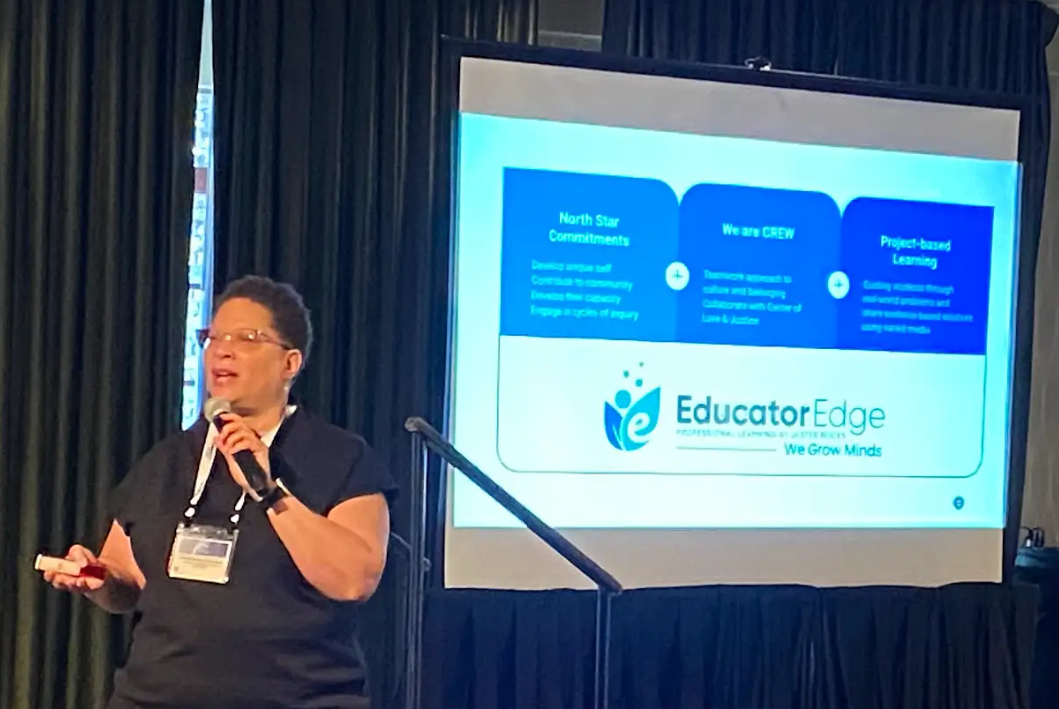
While many districts have a "Portrait of a Graduate", the real challenge lies in translating that vision into daily practice. Julianne Ross-Kleinmann, Supervisor of Instructional Services, Ulster BOCES, presented a roadmap for bridging this gap, centered on Ulster BOCES' "North Star Commitments": developing a unique self, contributing to the community, developing capacity, and engaging in inquiry.
Ross-Kleinmann highlighted Project-Based Learning (PBL) as the most effective vehicle for realizing these competencies. By guiding students through real-world problems, educators can turn abstract ideals like "critical thinking" into tangible skills. She outlined a four-part PBL framework:
- The Launch: An experiential opening ensuring equitable access.
- Ideation & Design: Students drive the planning while teachers facilitate.
- Tuning & Reflection: Structured feedback loops.
- Celebrations of Learning: Honoring both success and struggle.
To make these concepts practical, Ross-Kleinmann introduced protocols such as "Four Corners," in which participants brainstorm what attributes such as "Culturally Responsive Global Citizen" look like in action. She also emphasized integrating modern tools, such as the Question Formulation Technique and AI curriculum, to ensure the Graduate Portrait remains relevant in a digital age.
Implementing Computer Science and Digital Fluency K-12
Laurie Guyon, Lead Coordinator for Instructional Technology Programs, WSWHE BOCES, addressed the urgency of integrating computer science and digital fluency, framing it as a critical intervention for student well-being and future success. She contextualized the need by looking at Gen Z and Gen Alpha, cohorts grappling with cyberbullying, digital overload, and anxiety. Implementing robust standards is essential not just for technical skills, but for equipping students with the resilience to navigate their digital environments.
A stark economic imperative also exists. With 67% of new STEM jobs in computing and 58% of tech jobs existing outside the traditional tech sector, the demand is high. Yet, only 6% of high school students are enrolled in computer science courses.
Guyon argued that preparing students for an AI-driven economy requires a holistic approach to standards, focusing on four pillars: Digital Literacy, Information Literacy, Media Literacy, and AI Literacy. By prioritizing these areas, districts can transform students from passive consumers into critical creators.
Collaborative Workshops and Awards
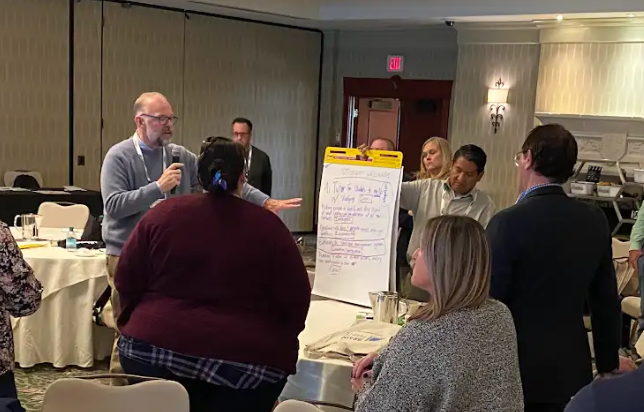
The culminating activity asked the attendees to work together to devise actionable strategies for staff and student wellness, fostering growth mindsets, and data privacy. Each team member was tasked to identify one action they can take in their role, and then discuss as a team how they might work collaboratively to bring their cumulative expertise together to impact their topic. Each team then presented their action plans, providing all attendees with actionable takeaways that they can take back to their districts.
The event concluded by recognizing excellence in the field with the Tech & Learning Innovative Leader Awards, an award given to district leaders in the region that are doing exemplary work to support innovation in education.
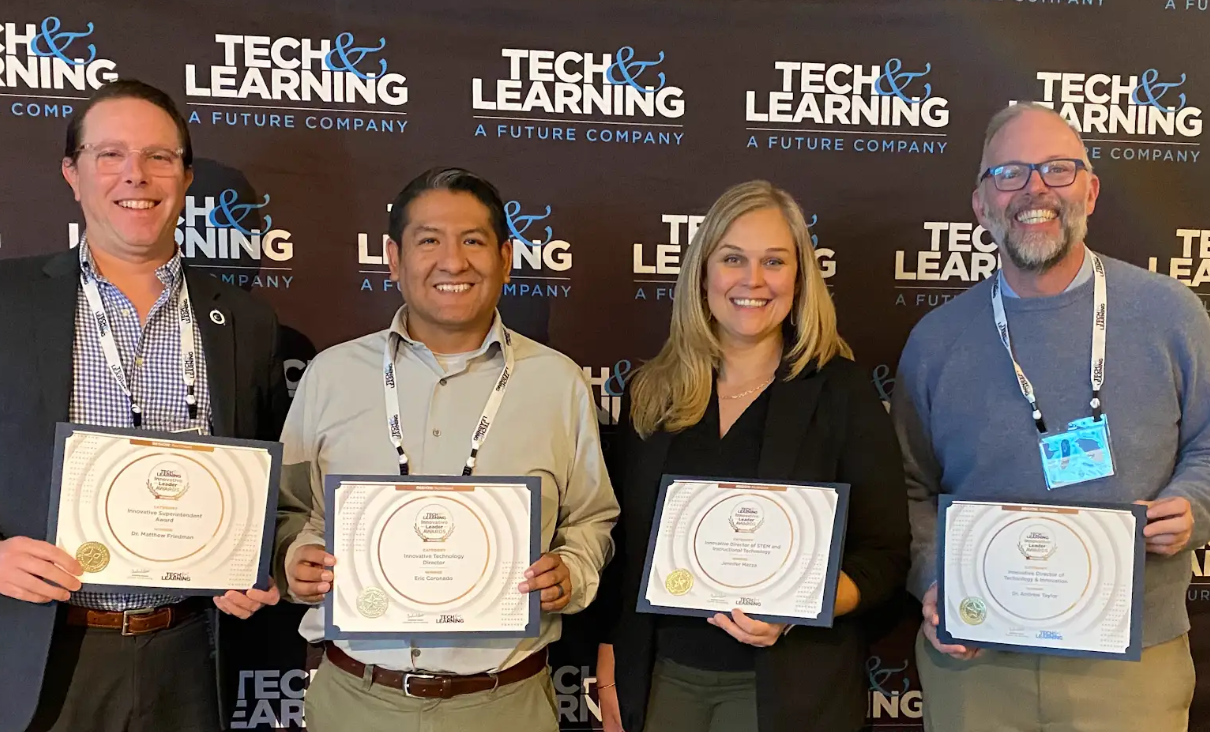
The winners are:
- Innovative Director of STEM and Instructional Technology: Jennifer Mazza, for launching an "AI externship" connecting students with local government.
- Innovative Director of Technology & Innovation: Dr. Andrew Taylor, for developing a new dashboard that tracks student emotions so teachers and staff can provide personalized support as needed.
- Innovative Technology Director: Eric Coronado, for integrating AI to support multilingual learners and launching a high school Cybersecurity Academy.
- Innovative Superintendent Award: Dr. Matthew Friedman, for his leadership in creating transformative learning environments that focus on durable workforce skills.
At the heart of the inaugural pre-NYSCATE Tech & Learning Leadership Summit conversations was the student, with an eye on how we as district leaders can best prepare them for an unknown future workforce. Attendees left with actionable strategies they can use to reimagine education in their own districts.
Thanks to our Summit partners for supporting these conversations:
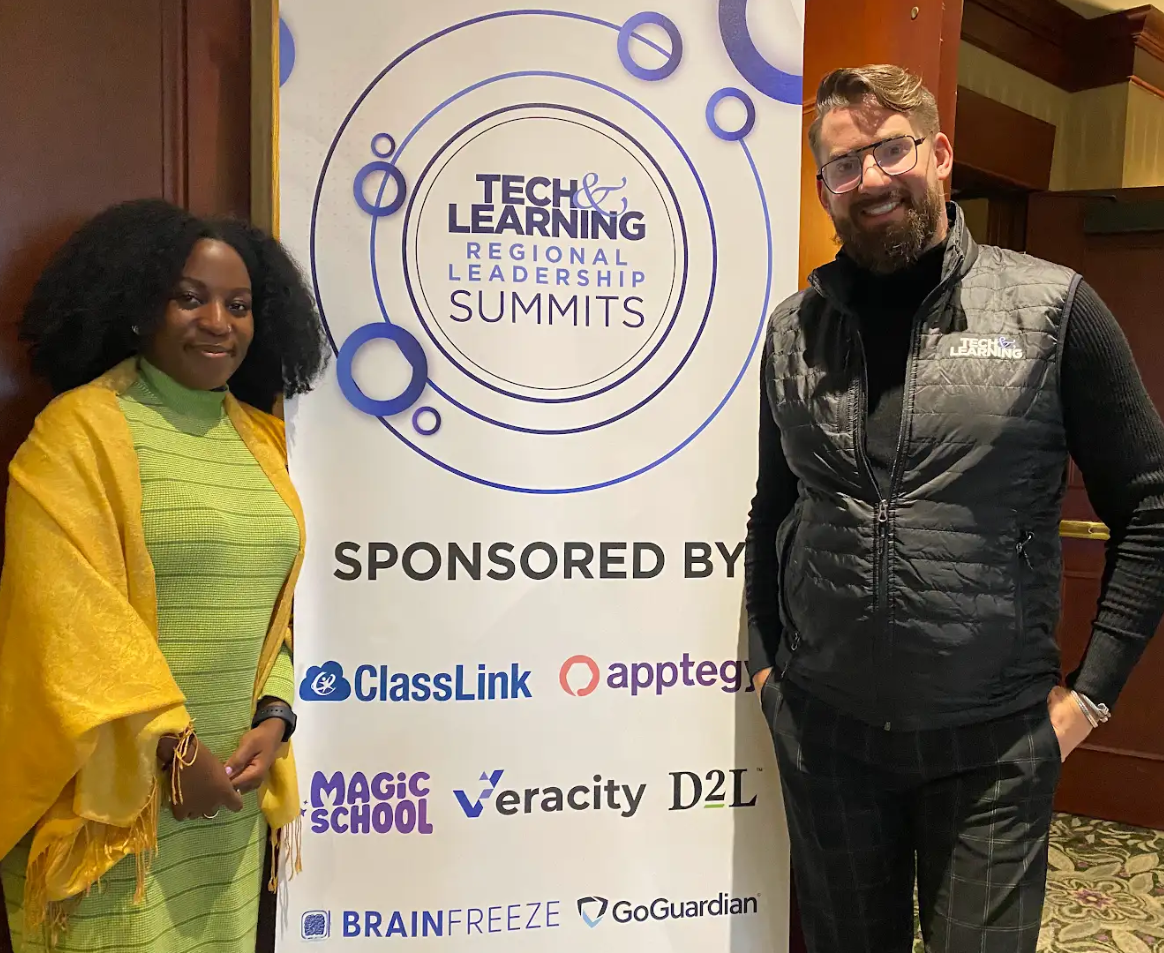
- Apptegy builds products and provides services that empower you to run better schools. Our products make it easy for administrators and educators to reach and interact with your parents, students, staff, and your community at large.
- BrainFreeze by Airia is a leader in educational technology, providing a powerful AI platform that transforms learning for students, teachers, parents, and administrators.
- ClassLink is a global education provider of identity, access and analytics products that create more time for learning and help schools better understand digital engagement.
- D2L is transforming the way the world learns—helping learners of all ages achieve more than they dreamed possible.
- GoGuardian and Pear Deck Learning provide a comprehensive suite of educational tools designed to enhance classroom engagement and improve student outcomes.
- MagicSchool AI is on a mission to bring an AI assistant to every teacher in the world and help tackle the crisis of teacher burnout and bring responsible AI to students to prepare them for the future.
- Veracity's mission is to connect technology, instruction, and business office leaders through a centralized system that enables team collaboration, communication with every stakeholder (including students and parents), and informed decision making.
- **A special thanks to the team at NYSCATE for being terrific partners!
Christine Weiser is the Content and Brand Director for Tech & Learning, and has been with the company since 2008. She has reported on education for most of her career, working at Scholastic and Gale Publishing before joining Tech & Learning. Christine is also an author and musician, and lives in Philadelphia with her husband and son.
